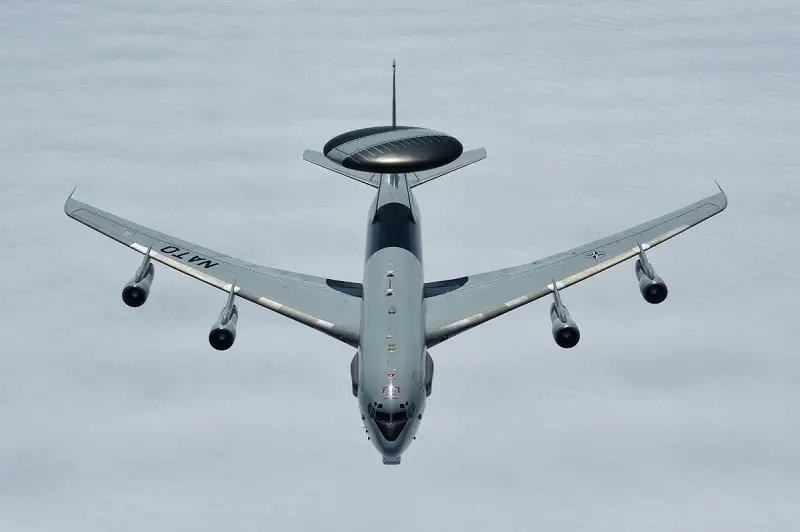The NATO Communications and Information Agency (NCI Agency) is supporting the NATO Airborne Warning and Control System (AWACS) aircraft by enhancing its communication capabilities. Through its Prototype Engineering Centre (PEC), the Agency has built a system called NATO Technical Data Link Container that will allow NATO forces and nations to receive air defence information and improve situational awareness for NATO Commanders. The container will enable transmission of the information compiled by the AWACS radar and sensors off board to the proper authorities and decision-makers.
The NCI Agency’s Prototype Engineering Centre offers engineering and manufacturing products for experimental deployment for NATO. Besides having supported the AWACS programme for over 30 years, PEC engineers design and build an array of products and infrastructure for a wide variety of NATO exercise and missions. The AWACS provide the Alliance with air surveillance, battle management command and control, and communications. The aircraft are used for a vast range of NATO missions, such as peacetime air policing, support to counter-terrorism and evacuation operations.

The enhanced communication system is the result of a collaborative effort between the NATO Communications and Information Agency (NCI Agency), the NATO Airborne Early Warning & Control (NAEW&C) Force and the NAEW&C Programme Management Agency (NAPMA). They are equipped with a radar system that provides 360-degree surveillance coverage. By contributing to Joint Intelligence Surveillance and Reconnaissance activities, the Agency assures information superiority for NATO, as it supports leaders, commanders and decision-makers, and helps maximize operational effectiveness for the Alliance.
NATO operates a fleet of Boeing E-3A Airborne Warning & Control System (AWACS) aircraft, with their distinctive radar domes mounted on the fuselage, which provide the Alliance with air surveillance, command and control, battle space management and communications. NATO Air Base (NAB) Geilenkirchen, Germany, is home to 14 AWACS aircraft. Under normal circumstances, the aircraft operates for about eight and a half hours, at 30,000 feet (9,150 metres) and covers a surveillance area of more than 120,000 square miles (310,798 square kilometres). The aircraft is capable of flying longer operations due to its air-to-air refuelling capability.















